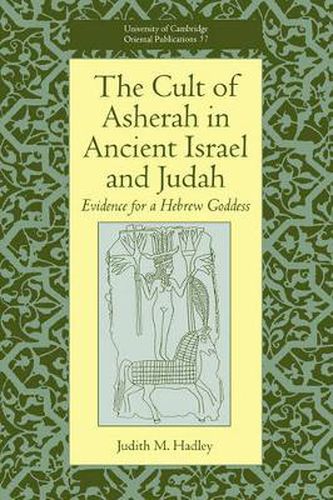Readings Newsletter
Become a Readings Member to make your shopping experience even easier.
Sign in or sign up for free!
You’re not far away from qualifying for FREE standard shipping within Australia
You’ve qualified for FREE standard shipping within Australia
The cart is loading…






Recent archaeological discoveries have encouraged scholars to reinvestigate the Israelite religion. In this book, Judith Hadley uses these discoveries, alongside biblical material and non-biblical inscriptions, to examine the evidence for the worship of Asherah as the partner of God in the Bible. By investigating the Khirbet al-Qom and Kuntillet ‘Ajrud inscriptions, for example, where the phrase 'Yahweh and his Asherah’ is frequently in evidence, the author asks what the ancient Israelites meant by this, how they construed the relationship between Yahweh and Asherah, and whether in fact the term actually referred to an object of worship rather than to a goddess. The author also evaluates more recent scholarship to substantiate her conclusions. This is a detailed and brilliant study which promises to make a significant contribution to the ongoing debate about the exact nature of Asherah and her significance in pre-exilic Israel and Judah.
$9.00 standard shipping within Australia
FREE standard shipping within Australia for orders over $100.00
Express & International shipping calculated at checkout
Recent archaeological discoveries have encouraged scholars to reinvestigate the Israelite religion. In this book, Judith Hadley uses these discoveries, alongside biblical material and non-biblical inscriptions, to examine the evidence for the worship of Asherah as the partner of God in the Bible. By investigating the Khirbet al-Qom and Kuntillet ‘Ajrud inscriptions, for example, where the phrase 'Yahweh and his Asherah’ is frequently in evidence, the author asks what the ancient Israelites meant by this, how they construed the relationship between Yahweh and Asherah, and whether in fact the term actually referred to an object of worship rather than to a goddess. The author also evaluates more recent scholarship to substantiate her conclusions. This is a detailed and brilliant study which promises to make a significant contribution to the ongoing debate about the exact nature of Asherah and her significance in pre-exilic Israel and Judah.